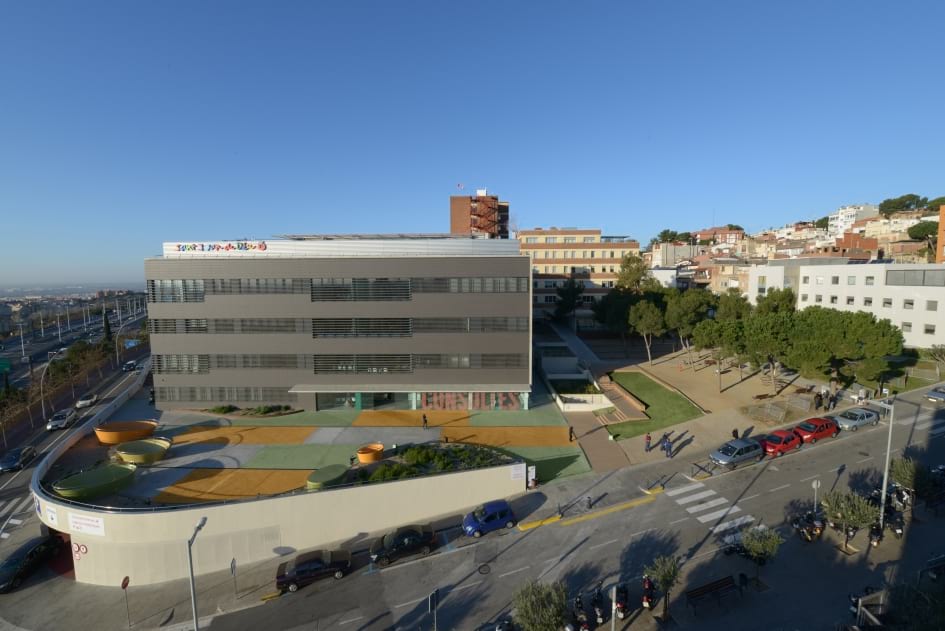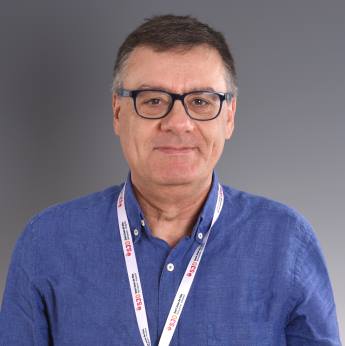
Department of Genetic and Developmental Medicine and IPER
SJD – Sant Joan de Déu Children’s Hospital, University of Barcelona
Passeig Sant Joan de Déu 2
08950 Esplugues de Llobregat, BARCELONA
SPAIN
Lead

Pr. Dr Francesc Palau
Telephone: +33 (0)123 45 6789
Fax: +33 (0)123 45 6780
Mail: lorem.ipsum@aphp.fr
Scope
The area of expertise of our Centre, as member of the ITHACA European Reference Network (ERN), covers syndromes exhibiting intellectual disability (ID) and/or rare congenital malformations with special interest in different forms of craniofacial malformations. About 1 in 40 newborns have a congenital malformation and up to 2% have or will show ID, caused by different individually rare diseases, among which up to 50% are of genetic or genomic origin. The jurisdiction and scope of expertise of Düsseldorf ITHACA Centre includes:
- over 5500 dysmorphological and multiple congenital anomalies (MCA) syndromes (listed in the London Dysmorphology Database), with monogenic diseases, chromosomal anomalies (detectable through conventional chromosomal analysis and/or CGH-Array technology), multifactorial or sporadic anomalies as well as embryofetopathies of environmental origin
- >1500 monogenic and hundreds chromosomal forms of ID with or without associated autism spectrum disorder (ASD).
Service to patients
Sant Joan de Déu Barcelona Children’s Hospital (SJD) offers two coordinated services to attend children with rare and genetic disorders, the Department of Genetic and Developmental Medicine, and the Pediatric Institute of Rare Diseases. We focused on diagnosis, management and treatment of undiagnosed and rare diseases (URDs) in touch collaboration with other clinical services in a wide network within the whole SJD and even beyond.
The Department of Genetic and Developmental Medicine (GeneDevo) offers services for children including diagnostic consultations, genetic counselling, diagnostic laboratories of genetics and genomics, and prenatal testing. Currently, there are three clinical geneticists, one pediatric neurologist focused on neurogenetics, one fellow in clinical genetics and dysmorphology, two genetic counsellors, one case manager, eight clinical scientists specialized in laboratory genetics and genomics, two clinical bioinformatics and one biologist for cell biology and imaging studies.
The Pediatric Institute of Rare Diseases (IPER) offers services of clinical counselling of children with URDs and complex diseases by promoting coordinated consultations of multidisciplinary medical teams. The needs of this group of patients are addressed through the ‘Functional Plans’ and the ‘Day of’ with consultations to other specialists that include neurologist, endocrinologist, cardiologist, ophthalmologist, otologist, dermatologist, surgeon and dentist for pediatric patients. If necessary, the patients are also referred to physiotherapists, social workers, nutritionists, and rehabilitation counsellors. We refer the patients with congenital malformations and ID to the special workers of that clinic where the follow‐up is performed.
We are also working to psychologists and child psychiatrists of the Department of Child Mental Health. Psychosocial support is also offered through the Catalan Network of Child and Adolescent Mental Health Centres (CSMIJ). To meet the social need caused by a rare disease, patients receive written information and contact details from available patient organizations.
Translational research is done along with the Neurogenetics and Genomic Medicine Research Group of the SJD Research Institute, which offers a Translational Diagnostics Programme (TDP) for functional validation of genetic variants in patients with URDs.
Organisation of the Center
The SJD Barcelona Children’s Hospital assists to society without exclusions thanks to the agreement with the Catalan Health Service (CatSalut) and the Spanish National Health System. It has > 2,200 staff, 314 beds and 161 outpatient-consulting rooms, and is one of the largest children and women hospital in Spain and Europe, offering advanced services in most specialties of pediatric medicine and surgery. SJD has adequate numbers of operating theatres, intensive care units, isolation rooms, 24/7 services and emergency rescue. It is recognised with 21 European Reference Networks for rare and complex diseases, as well as 42 the pediatric reference services by the Spanish Ministry of Health and Catalan Government. These accreditations acknowledge the clinical expertise of the departments and units, their ability to conduct research, exchange information and work as part of a network, the training of their professionals and their facilities. As a territorial hospital, we offer services to 350,000 inhabitants under the age of 18 with a population of 1.9 million, and as a pediatric reference hospital in the CatSalut, with 7.5 million inhabitants.
The SJD Laboratory, our accredited and certified hospital district-owned laboratory, performs over 2.8 million lab tests annually. The GeneDevo Laboratories and the Cancer Molecular Genetics Laboratory perform about 25,000 genetic tests annually including genomics with NGS facilities, molecular genetic testing, cytogenomic testing (arrayCGH) and cytogenetic studies. SJD Medical Imaging Diagnosis Department provides services (e.g. x-ray, scanning, ultrasound, CT, MRI, PET-CT) covering the needs of all specialties.
The SJD Research Institute has programmes in the fields with a special focus on precision medicine for rare diseases, human genetics and genomics, neuroscience, pediatric and developmental cancer, endocrinology, immunology and infectious diseases, and associated clinical groups in cardiology, orthopedics, and critical and emergency medicine.
The SJD Barcelona Children’s Hospital is a teaching hospital attached to the University of Barcelona. Teaching includes postgraduate studies in medicine and nursing (pediatrics, obstetrics and gynecology), various medical and nursing specialties, postgraduate studies including master’s degrees in various pediatric subspecialties and MD/PhD and PhD programmes.
